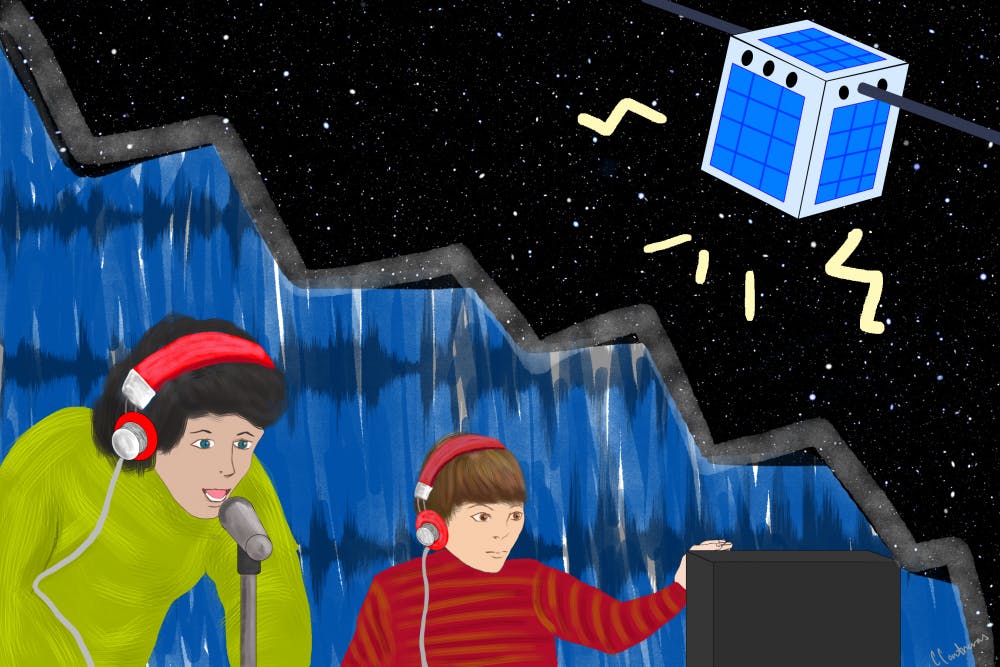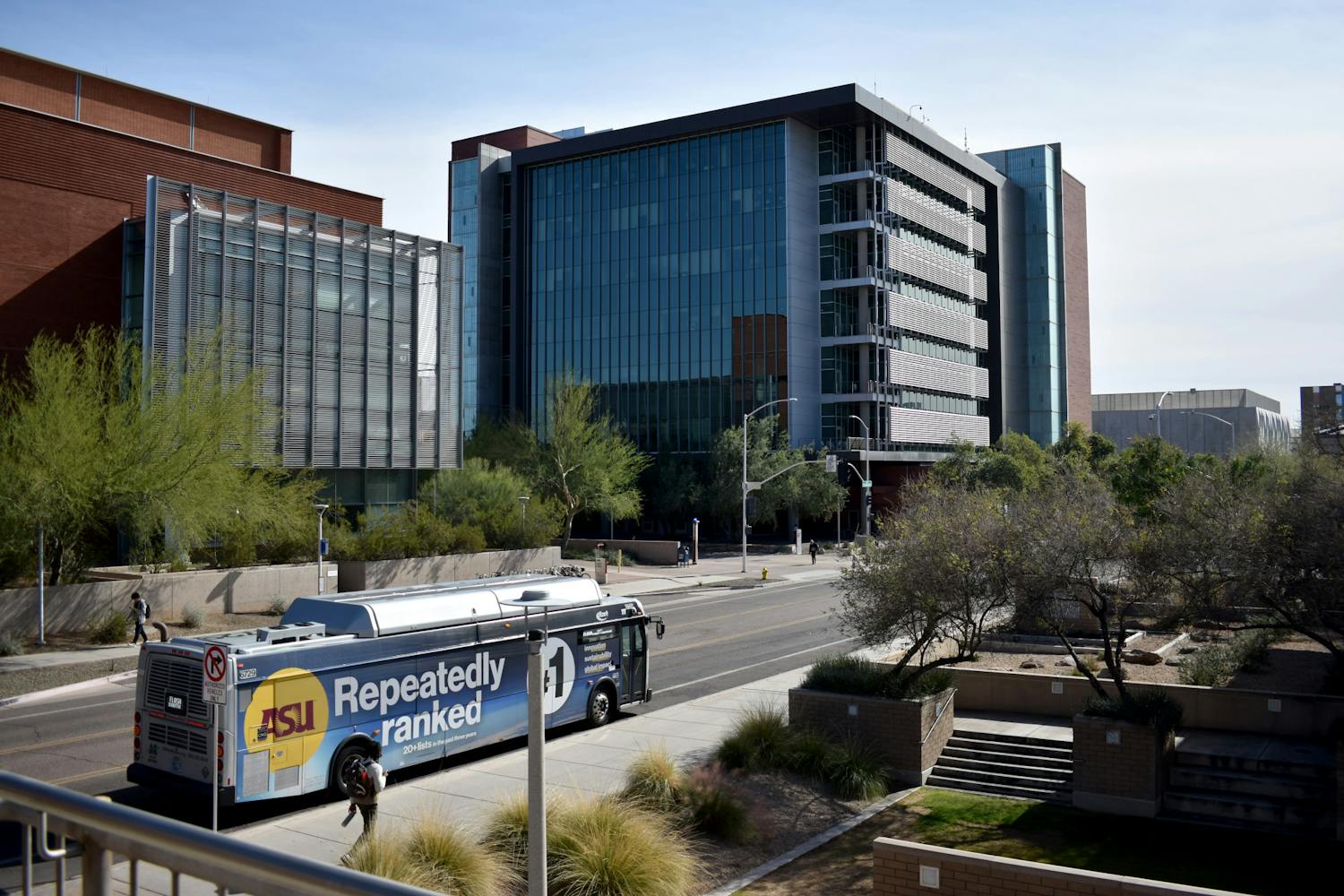ASU has a history of contributing to space exploration, usually offering instruments to put onboard satellites.
However, recent grants from NASA and advancements in cube satellite (CubeSat) technology have made it possible for ASU to build its very own satellites. CubeSats are small-scale spacecrafts, which have gained popularity within the field of space exploration because of their low cost and versatility.
Now, an interdisciplinary team of undergraduate students are building a radio ground station for future ASU space missions and radio astronomy research. The ground station will communicate with low orbital CubeSats like ASU’s Phoenix satellite.
Phoenix is being built by another interdisciplinary team of undergraduates, using infrared imaging to investigate how human activity and weather create heat islands around urban areas like Phoenix.
Jeremy Jakubowski, a senior majoring in computer science and project manager for the ground station, said the station is limited to communicating with satellites studying celestial objects as close as the moon.
The ASU ground team will be able to test the station's long-range communication capabilities in 2018 when the ASU CubeSat begins its Lunar Polar Hydrogen Mapper mission, which aims to produce a detailed map of the moon’s water-ice deposits.
The ground station team has had to find creative solutions to design its hardware, which has allowed it to gain valuable experience managing a high-profile project.
The ground station will have to be capable of adapting to a variety of obstacles such as downloading large files like high resolution images.
The team also has legal obstacles to consider since the Federal Communications Commission regulates all radio-based communications.
Christopher Marrs, an electrical engineering senior, said the challenge and the opportunity to get hands-on experience was what first attracted him to the project.
“It's hard to believe, but it’s not uncommon for electrical engineers with their masters or even Ph.Ds to have never soldered a board before going into the field," Marrs said. "This a key project. It shows that we can take theory and put into actual application.”
Nick Altman, an electrical engineering junior, said the technology is applicable to professional missions being conducted by several companies.
For the ASU mission, he has mostly worked on a software-defined radio system to process the data the station will be sending and receiving.
"It's very rewarding. Its fun to see that something you built is going into space or communicating with something on the moon," Altman said.
Jakubowski said that the mission will be valuable to their job search in the future.
“That seems to be the most important component in finding a job or an internship," Jakubowski said. "One of the first things they ask in an interview is, 'what projects have you worked on?'”
Not only is the ground station relevant in the field of space exploration, but it will also make ASU missions less dependent on third parties to relay information to ASU’s mission control center. It will save various ASU missions money since contracting a third party for a single mission costs as much as the entire budget for the ground station.
Jakubowski is also working on a web application that will allow registered users to easily access the ground station and schedule events. The app will also provide the public with general information about CubeSats communicating with the ground station.
The ground radio station team is gaining hands-on experience, which will be of value when they become professionals, but they are also contributing to ASU’s legacy of space exploration.
Reach the reporter at cazares429@gmail.com or follow @sonic_429 on Twitter.
Like State Press on Facebook and follow @statepress on Twitter.




